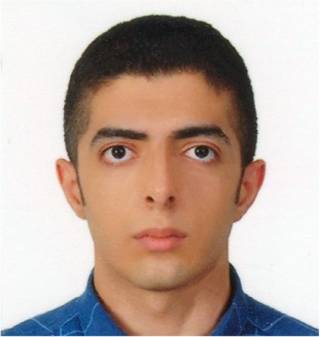 My name is Ali Piri. I have started my work as an ESR with the APROPOS project in September 2021 at Ecole Centrale de Lyon – Institute of Nanotechnology of Lyon (ECL-INL), France. I was born in Tabriz, Iran, in 1993. I received my bachelor of science degree in Computer engineering from the University of Tabriz in 2016, and then my master of science in Computer Architecture from the University of Tehran, Iran in 2019.
My name is Ali Piri. I have started my work as an ESR with the APROPOS project in September 2021 at Ecole Centrale de Lyon – Institute of Nanotechnology of Lyon (ECL-INL), France. I was born in Tabriz, Iran, in 1993. I received my bachelor of science degree in Computer engineering from the University of Tabriz in 2016, and then my master of science in Computer Architecture from the University of Tehran, Iran in 2019.
During my master’s, my research was predominantly focused on approximate computing (AxC) and PVT variation. In my MSc thesis project, I evaluated the variation impact in approximate arithmetic circuits. The main goal of this work was to evaluate circuit characteristics and accuracy under variations, but I also proposed an approximate unsigned multiplier that outperformed other similar multipliers in terms of energy consumption and accuracy. I was always interested in Approximate Computing, Embedded Systems, and Circuit Design, so I am really glad that I can follow my interests in my current project.
The title of my project is “Design Space Exploration for Accuracy-aware Computing” (ESR 6). This project is divided into three main tasks:
1) AxC operators modeling: In this task, we are going to model the Approximate Operators (existing ones from the literature and/or developing new ones). The operator models will compose a library. A source-to-source compiler will be implemented to generate a mutated version of the source code by adding the available approximate operators.
2) Search Engine: In this task, we aim at identifying the “best” configuration of the approximate operators added in the mutated source code (e.g., for the loop perforation it has to identify the maximum number of skipped iterations). Clearly, the search space will be very huge, thus it will be not possible to use an exact algorithm to identify the best solution. We thus propose to use heuristics, and we forecast to investigate the use of evolutionary algorithms.
3) Workload Independence: Each time that a configuration for an approximate operator is identified, the impact on the application precision has to be checked (i.e., avoid to degrade too much the application precision). The problem is which workload should be used for the evaluation. The critical point will be how to identify a meaningful workload (i.e., that correctly mimics the real workloads) and how to characterize it.
I consider being part of the APROPOS project and working on this topic a great opportunity to fulfill my interest in research, creative problem solving, and sharing my knowledge. I also like this research position for its collaborative and team-oriented nature and I find working alongside other curious minds thriving.

